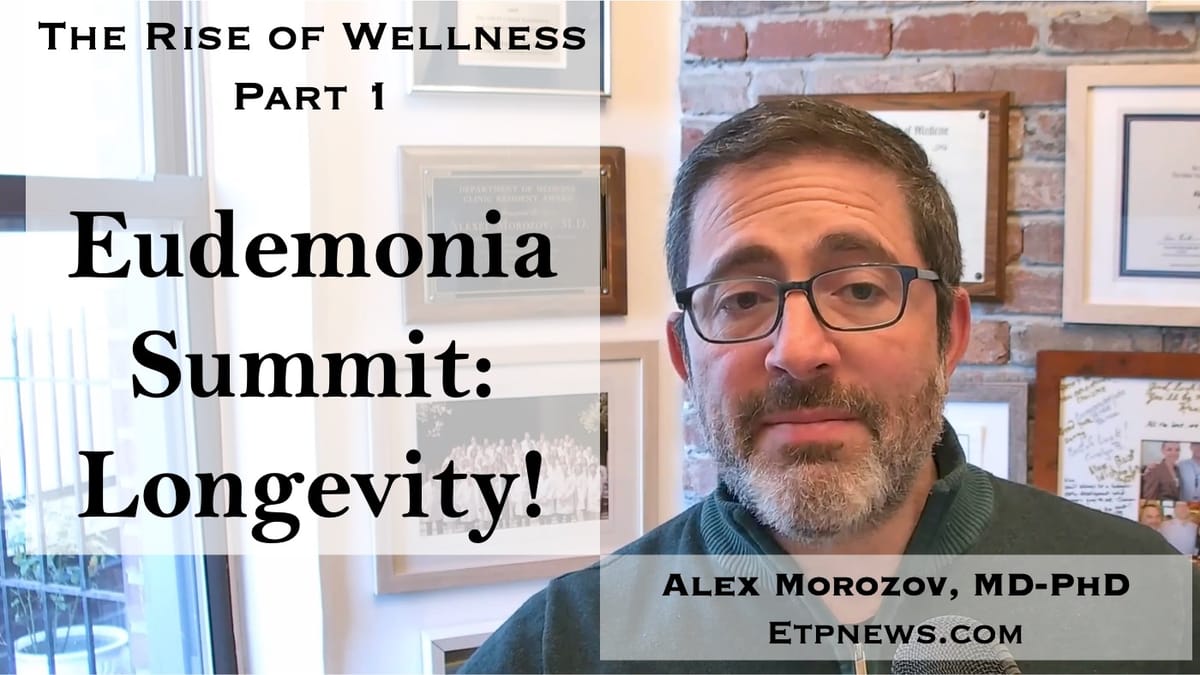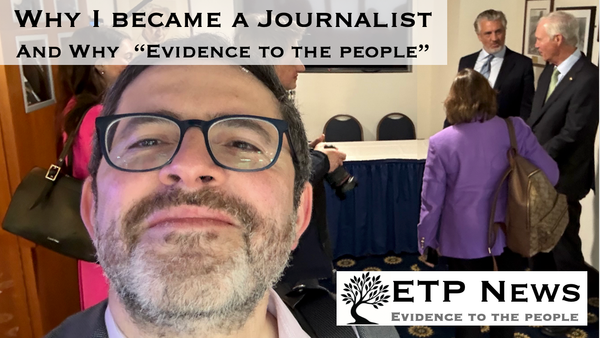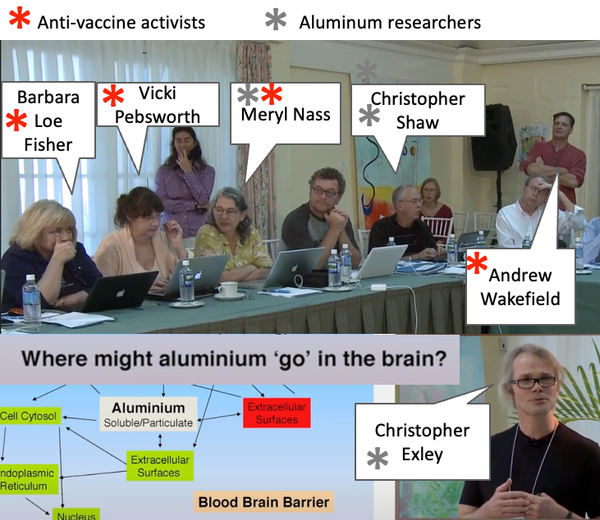Celebrities, Quasi-Particles, Everything Works and No Side Effects - Reporting From The Eudemonia Summit
“Eudemonia at its core is the source of truth. It’s the place to discover what’s real and what isn’t. What is science and what is snake oil.”

AND REMINDER - The Quiet Rise of Wellness: A Conversation with Dr Melissa Zimdars - Wednesday 11-12 EST
THE SECOND annual meeting of the longevity enthusiasts with a dreamy title - Eudemonia - was held last weekend in West Palm Beach, Florida.
Three full days. Five thousand people. 165 speakers. An exhibit hall with 67 vendors.
The overarching goal of this community is definitely worthwhile - to live a longer (“longevity”) and healthier (healthspan) life.
I attended with a few goals of my own: (1) to get a crash course in wellness - a 7-trillion-dollar global industry; (2) to hear key voices; and (3) to understand how wellness is the same or different from evidence-based medicine.
In other words, this conference is getting to the same order of magnitude as a medical conference - those are typically 10 - 20 thousand attendees. How is this conference different? Well, for one - I have been to many medical conference, and not once heard the concept of snake oil. Here it’s part of the conference mission. It’s on people’s minds.
At a plenary session in a large auditorium, Tyler Wakstein, Eudemonia’s head of partnerships, said, “Eudemonia at its core is the source of truth. It’s the place to discover what’s real and what isn’t. What is science and what is snake oil.”
Eudemonia’s description echos this sentiment. Also quite different from a medical conference - I have not heard anyone reaffirm that they “believe in science" - that goes without saying usually.
“Our lineup includes leading MDs specializing in gut health, brain chemistry, and cancer detection, alongside renowned nutritionists and groundbreaking entrepreneurs at the forefront of scientific advancements. Our experts represent the front-line practitioners, lauded researchers, trusted clinicians, and compelling storytellers who have spent their lives sharpening the scientific underpinnings of what it takes to be, feel and stay well. These are folks who believe in science, who believe in the freedom of ideas, and who are willing to talk with people who see things differently… Our mission is to cut through the noise of fads and misinformation. We’re here to clear out the snake oil and get to the heart of what empowers you to take charge of your health.”
The other difference is that credibility and status in this community is measured not in terms of basic or clinical research publications. It’s measured in two things: how many millions of social media followers, and how many New York Times best sellers. A faculty position in a well-known institution like Harvard, Columbia, Stanford, Cleveland Clinic is an added bonus.




